NJSI organized a two-day workshop for principals and vice-principals on 3rd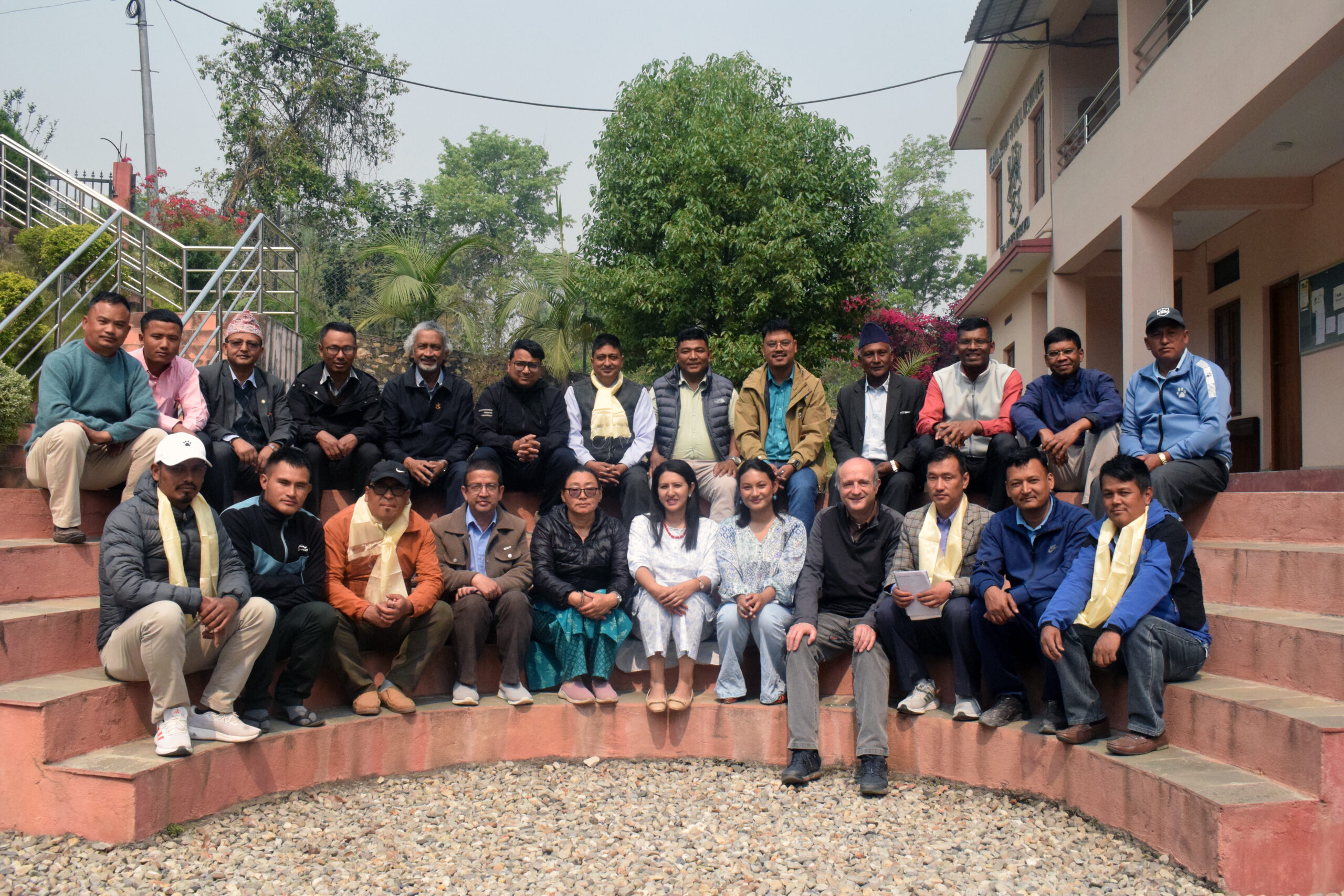 and 4th April at the Kavre Regional Center (KRC). A total of 15 principals and vice principals from 8 different schools took part in the workshop. The main goal of this event was to bring together school leaders under one roof to strengthen trust and collaboration around the Fe y Alegría Nepal program. We’ve carefully chosen 8 schools for this initiative based on factors like proximity, large student populations, strong coordination, solid relationships with staff, a focus on secondary education, and previous involvement with the REIN project. These schools are Shree Batchhala Secondary School, Shree Dongden Devi School at Dhadhing, Shree Bhagawati Secondary School, Shree Grammunnati Secondary School at Kavre, Shree Secondary School at Ramechhapp, Shree Himalayan School at Gorkha, Shree Kali Devi Secondary School at Sindhupalchowk and Shree Bhumesthan Secondary School at Dolakha.
and 4th April at the Kavre Regional Center (KRC). A total of 15 principals and vice principals from 8 different schools took part in the workshop. The main goal of this event was to bring together school leaders under one roof to strengthen trust and collaboration around the Fe y Alegría Nepal program. We’ve carefully chosen 8 schools for this initiative based on factors like proximity, large student populations, strong coordination, solid relationships with staff, a focus on secondary education, and previous involvement with the REIN project. These schools are Shree Batchhala Secondary School, Shree Dongden Devi School at Dhadhing, Shree Bhagawati Secondary School, Shree Grammunnati Secondary School at Kavre, Shree Secondary School at Ramechhapp, Shree Himalayan School at Gorkha, Shree Kali Devi Secondary School at Sindhupalchowk and Shree Bhumesthan Secondary School at Dolakha.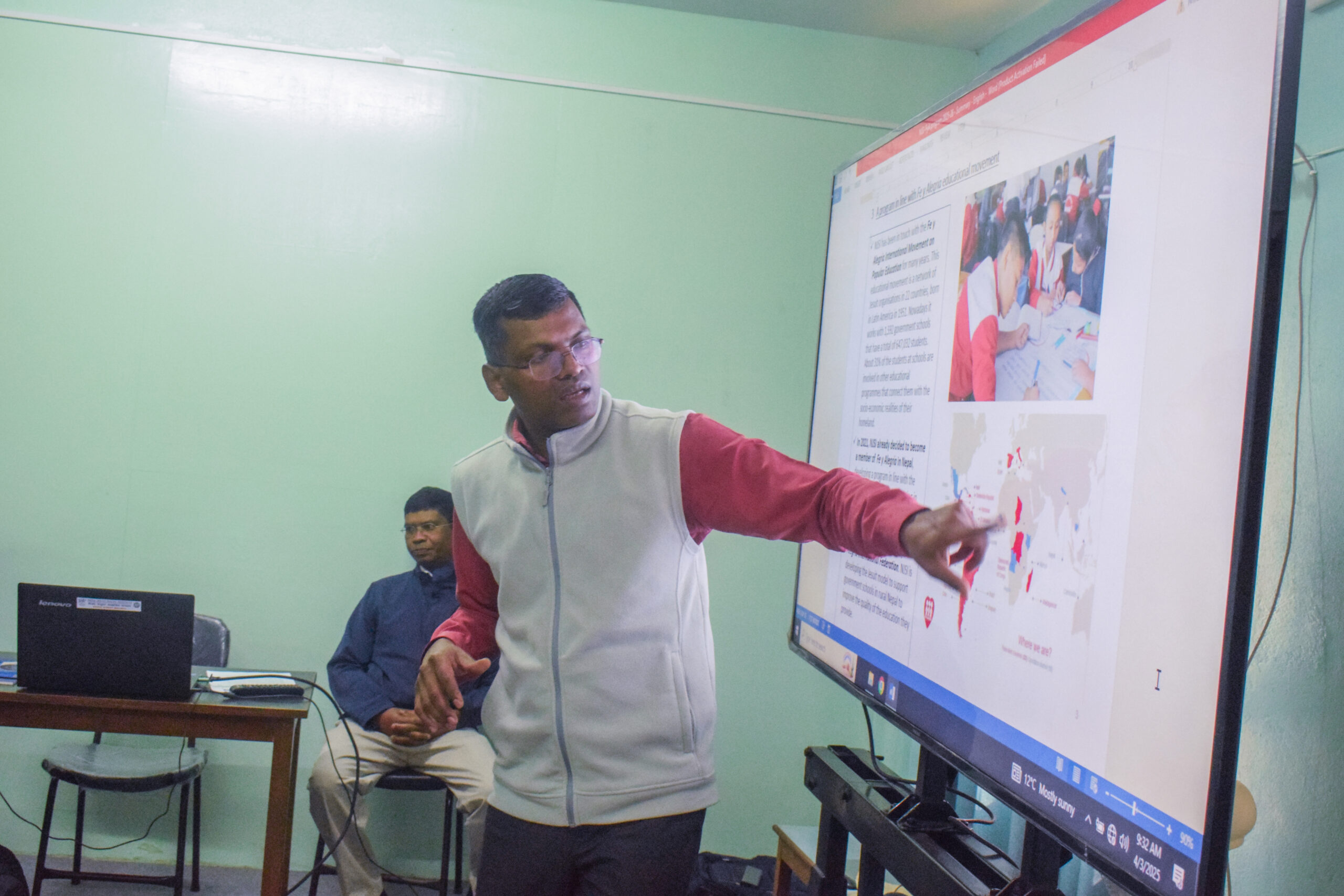
In an early stage of planning for improving the quality of education in the rural schools, we staffs were scattered in 8 different locations to collect the in-depth data from these schools. We collected information from a various stakeholder, including school principals, teachers, students, members of the School Management Committee (SMC), Parents Teachers Association (PTA) members, parents, ward chairpersons, and Education Officers from the Rural Municipality. We had a sort of Questioner for each individual. We used the method of one-to-one interview, group discussions, observations and secondary data analysis. 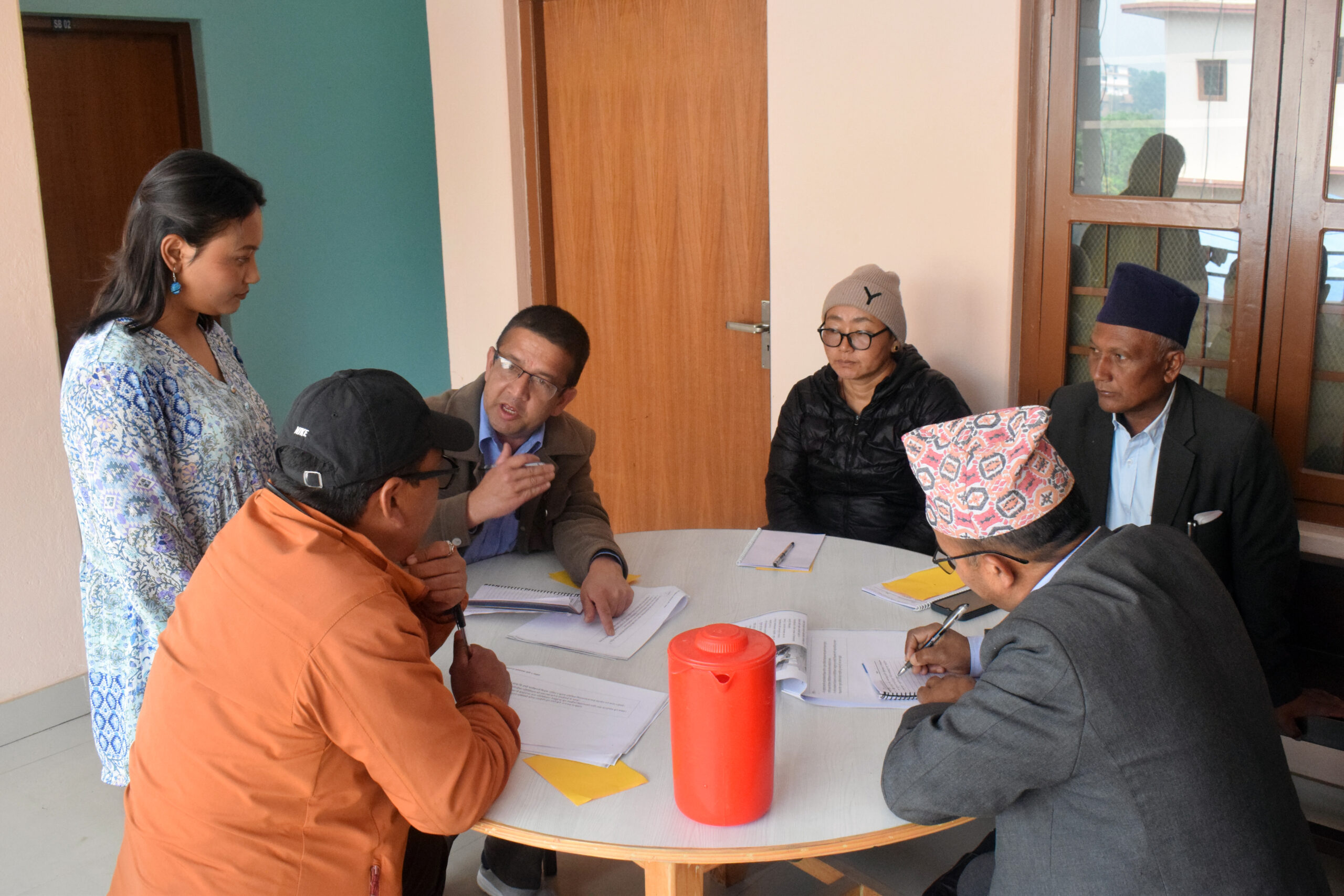
Basically, our activities are divided into 3 main categories, Formal Education, Non-formal Education and Inclusive Education. As the Jesuits are renowned for the expertise in Formal Education, we will be receiving guidance from the Jesuit community. For the Non-formal Education, Laia an Education Specialist, from Spain is guiding us and last but not the least, for the Inclusive, we are communicating with other INGOs/NGOs to exchange the ideas and strategies. We have met couple of organizations to share the ideas and best practices. Although, NJSI has been working in these three areas since 2015, this new initiative builds on our previous experiences while also integrating expert input to ensure the success of the Fe y Alegría Nepal program. 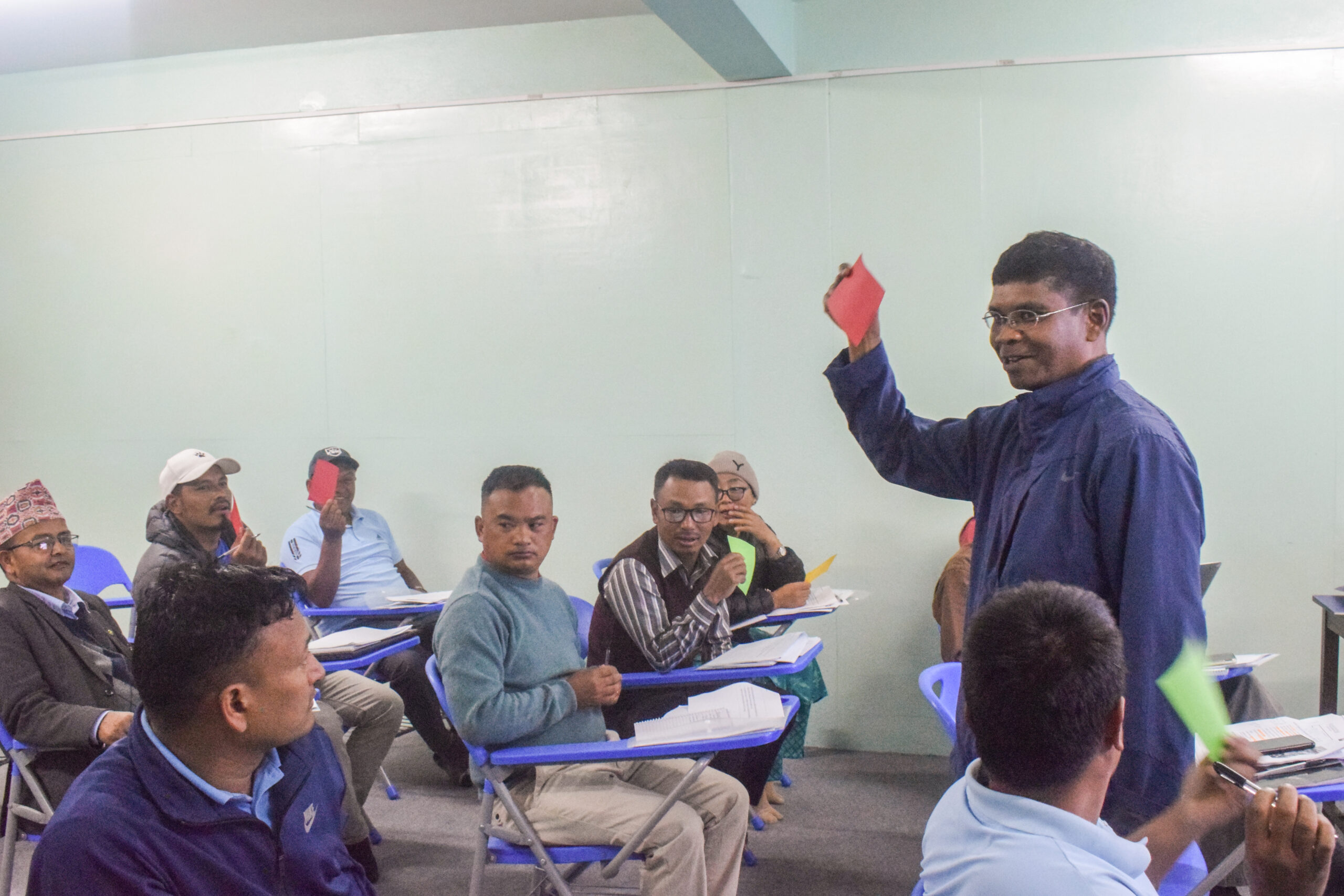
Our two-day workshop with the principals and vice-principals was highly interactive and productive. It is foundational step in launching the Fe y Alegría Nepal program. During the sessions, we presented our background, objectives, planned activities, and methodologies. The participants showed great interest and actively engaged with the 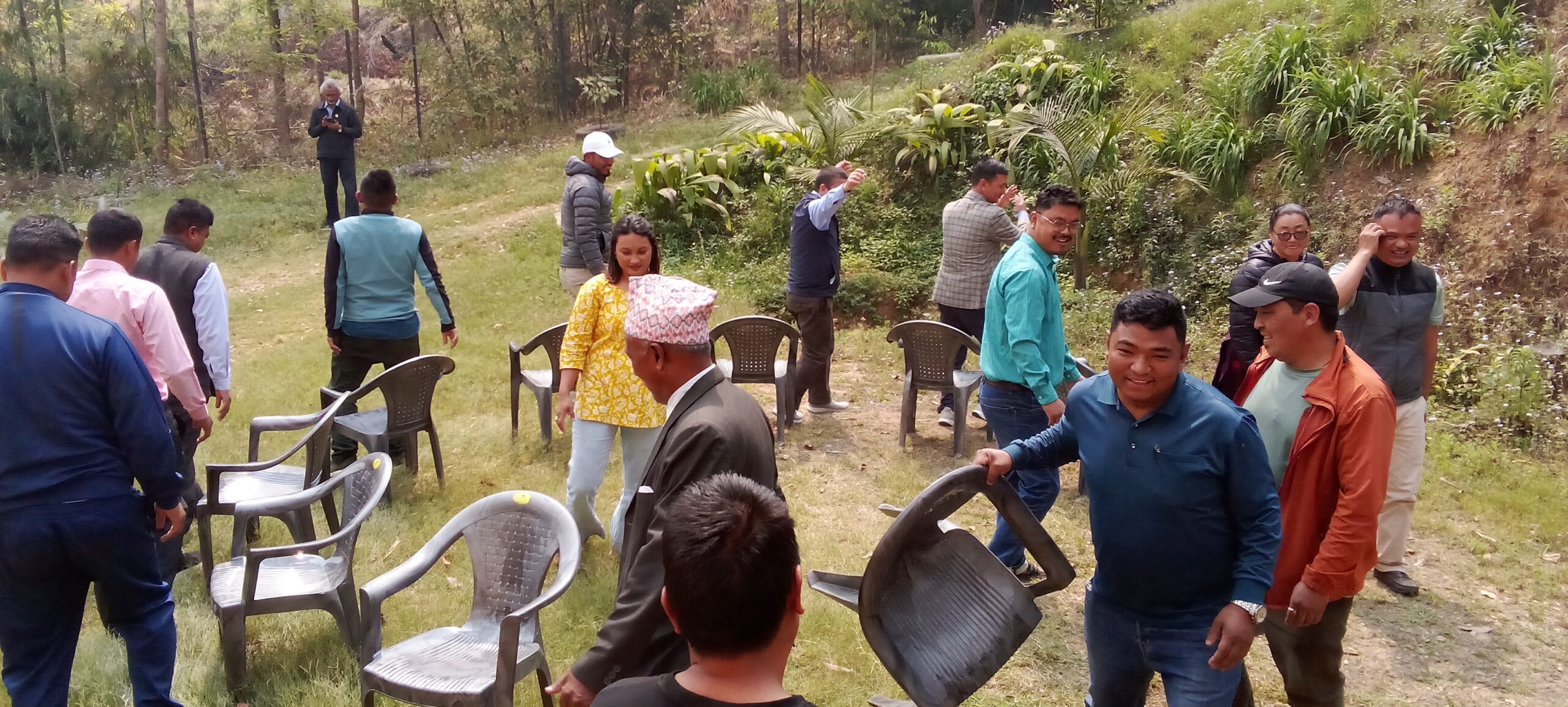 content, raising numerous questions and seeking clarity on various aspects of the program. The NJSI team addressed each of their concerns systematically and thoroughly. In addition to the presentations and interactive discussions, we also facilitated team-building activities, which were well-received and enjoyed by the participants. With valuable insight, NJSI is moving forward with a well-informed, collaborative, and strategic approach. We are confident that with continued engagement and guidance, the Fe y Alegría Nepal initiative will make a meaningful impact in the targeted regions and contribute to long-term educational transformation.
content, raising numerous questions and seeking clarity on various aspects of the program. The NJSI team addressed each of their concerns systematically and thoroughly. In addition to the presentations and interactive discussions, we also facilitated team-building activities, which were well-received and enjoyed by the participants. With valuable insight, NJSI is moving forward with a well-informed, collaborative, and strategic approach. We are confident that with continued engagement and guidance, the Fe y Alegría Nepal initiative will make a meaningful impact in the targeted regions and contribute to long-term educational transformation.
Global Solidarity, Local Action: Reflections from the 40th General Assembly of Fe y Alegría
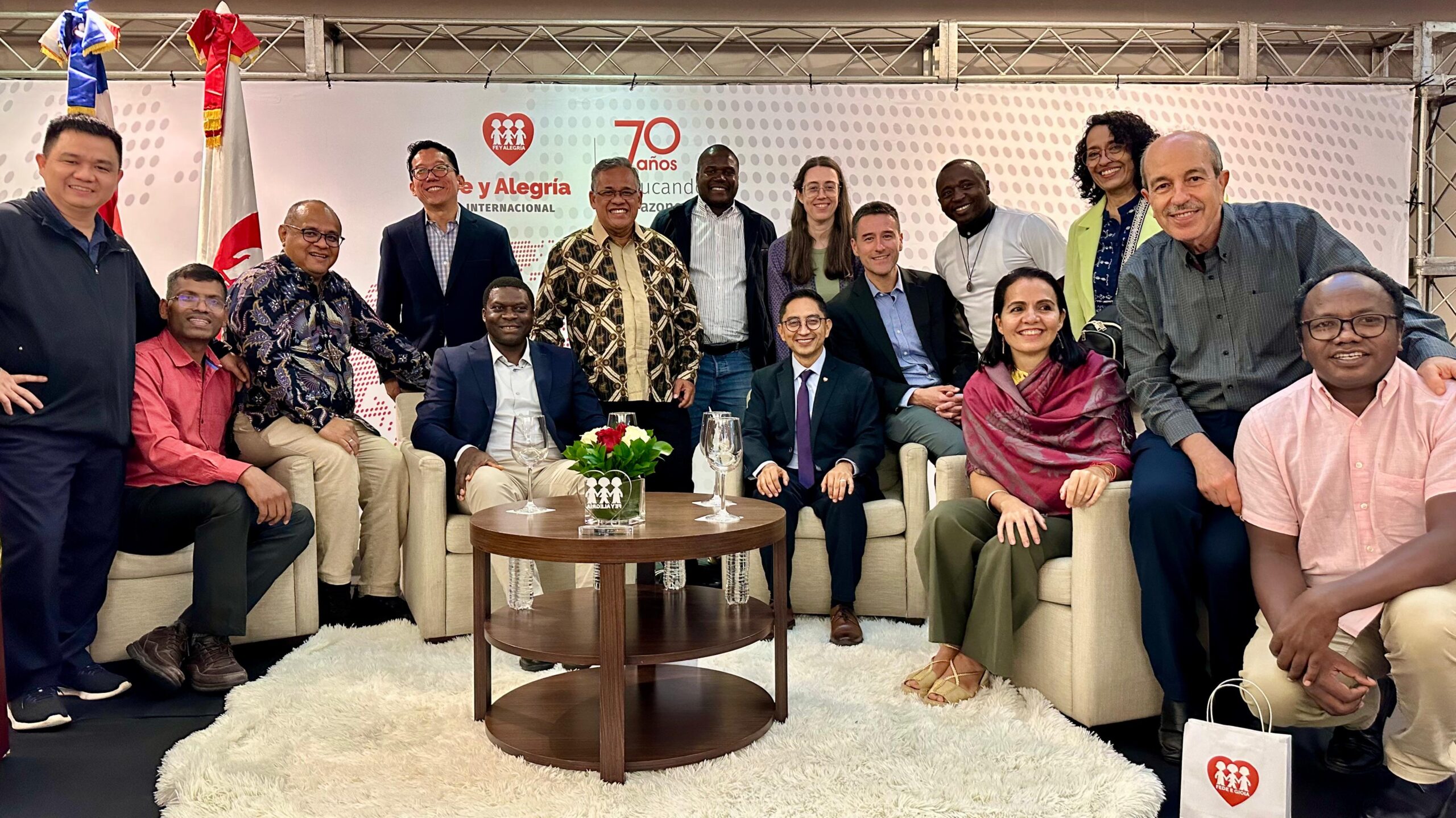
From 16 to 20 March 2025, vibrant change-makers from around the world gathered in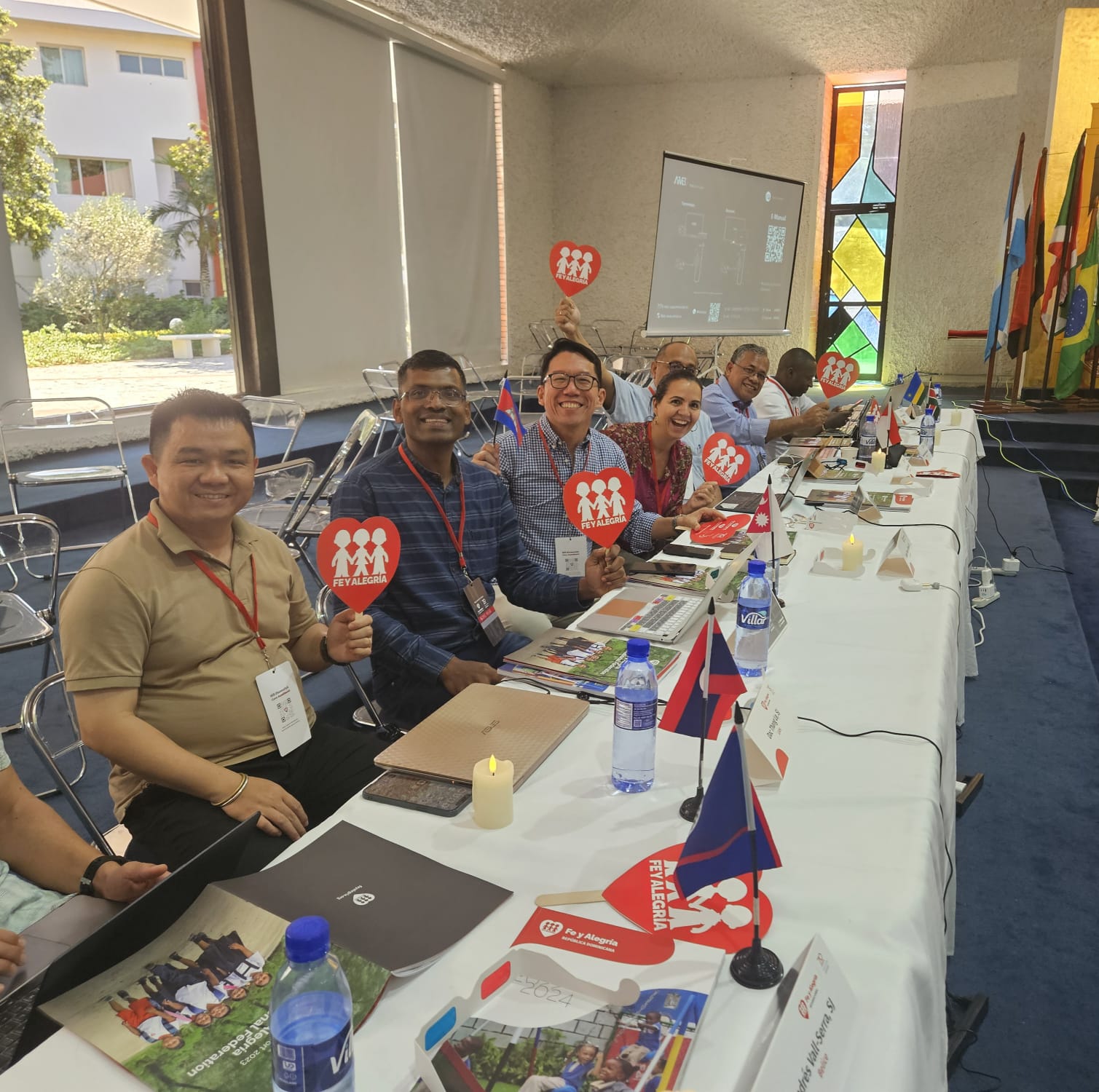 Santo Domingo, Dominican Republic, for the 40th General Assembly of the International Federation of Fe y Alegria. The Assembly was a true reflection of the diversity and cultural richness of the Federation that brought together 103 participants, 89 in person and 14 virtually. Among them, 9 representatives were from the emerging Fe y Alegria countries, including Nepal, represented by Fr. Agustus.
Santo Domingo, Dominican Republic, for the 40th General Assembly of the International Federation of Fe y Alegria. The Assembly was a true reflection of the diversity and cultural richness of the Federation that brought together 103 participants, 89 in person and 14 virtually. Among them, 9 representatives were from the emerging Fe y Alegria countries, including Nepal, represented by Fr. Agustus.
The children and youth of the Fe y Alegria schools of the Dominican Republic beautifully showcased this diversity during the opening ceremony. Their performance was also a poignant reminder of the Federation’s strong grounding in local contexts.
Critical global education issues were discussed in the panel discussions. Human rights, funding and citizen participation were some of the main topics. The conversations emphasized the urgency for a systematic transformation to address these issues.
The workshop on advocacy highlighted the urgency for collective public action. There was a strong call for youth leadership and the participation of the citizens. It also explored how youth could influence government at different levels.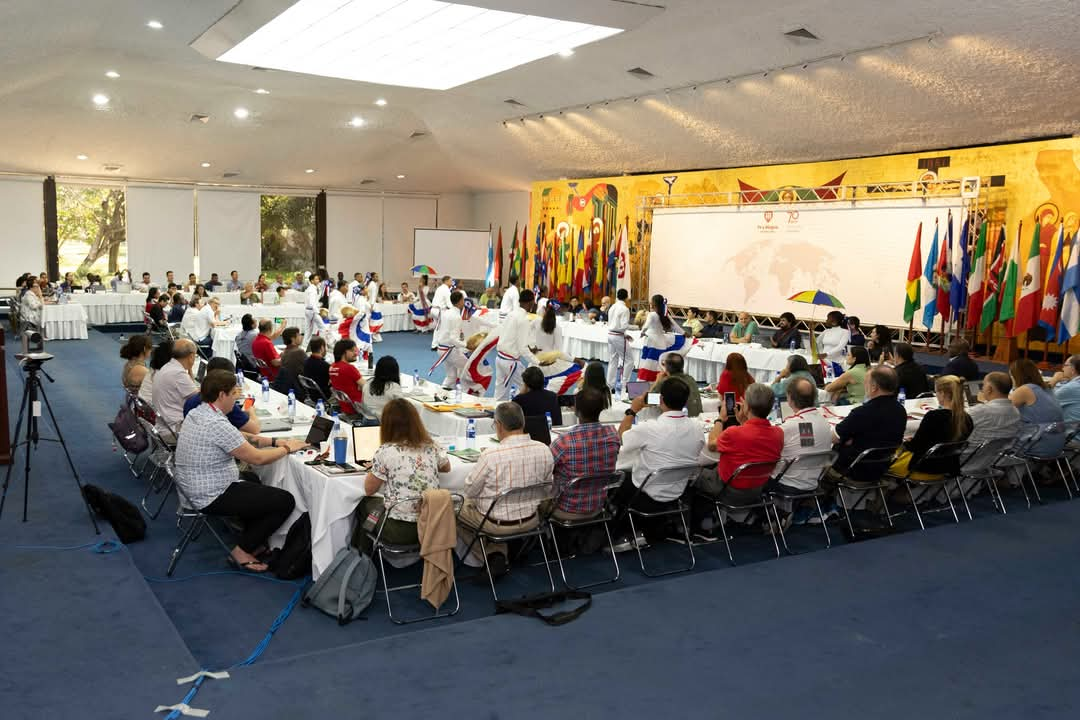
One of the sessions focused on new frontiers. The workshop recognized the need for the movement to reflect on the new frontiers to address new challenges, including inclusive education, early childhood, ecology, youth and migration. All the participants actively engaged in sharing their priorities unique to their local contexts.
Another important highlight of the Assembly was the visit to local Fe y Alegria educational institutions in the Dominican Republic. These visits offered us tangible examples of the impact of the Fe y Alegria movement on communities. Interactions with students and community members revealed the deep connection and mutual trust between schools and local communities, as well as their shared commitment to social development.
 Participating in the Assembly was really an enriching experience. It brought together diverse and rich stories of their commitment for social change from around the world. The events at the Assembly also showed us how education, when deeply rooted in local realities, can become a powerful tool for empowerment and social change. As the founder of Fe y Alegria Movement, Jose Maria Velaz said, “Education is not only a right; it is a means for liberation and transformation.”
Participating in the Assembly was really an enriching experience. It brought together diverse and rich stories of their commitment for social change from around the world. The events at the Assembly also showed us how education, when deeply rooted in local realities, can become a powerful tool for empowerment and social change. As the founder of Fe y Alegria Movement, Jose Maria Velaz said, “Education is not only a right; it is a means for liberation and transformation.”
We have an array of examples of how education has capacity to change lives. As we return to our own countries, we carry with us the spirit and the experiences of the movement. With faith and joy, we journey together in global solidarity through our local actions in rural Nepal, remembering the words of Valez, “Our horizon is the world, but our commitment is to the poorest.”

